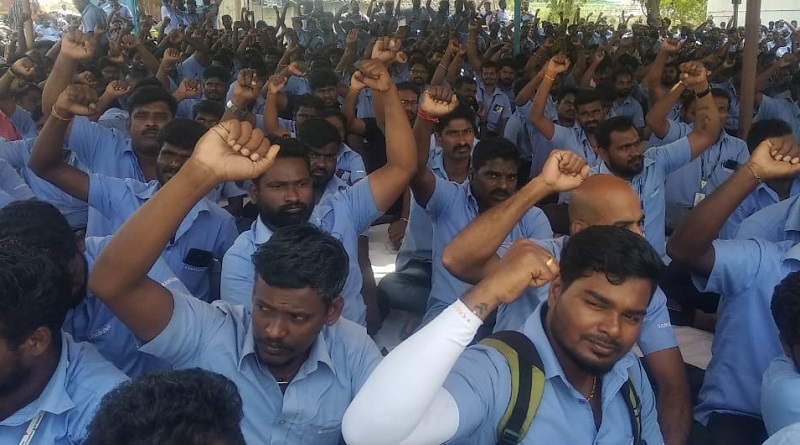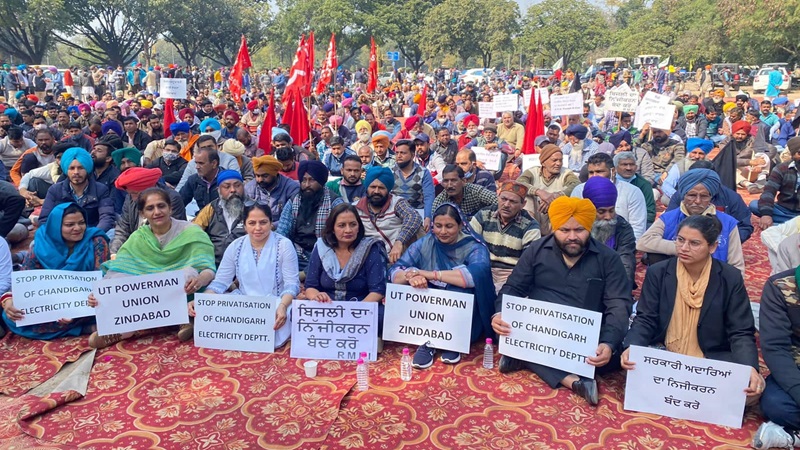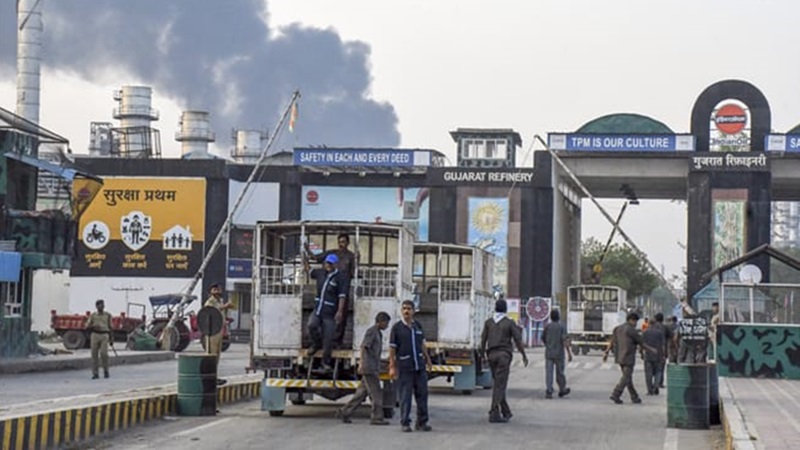Puducherry in resistance against electricity privatisation: A ground report
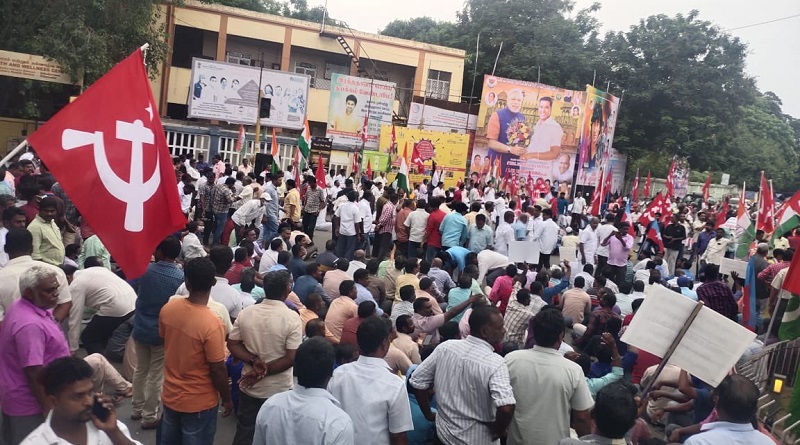
By Arpan from Chennai
Puducherry came into the news very recently for the massive strike by the electricity board (EB) workers which created a complete power shutdown spanning the union territory for five days. Puducherry is a union territory consisting of several district like Puducherry, Karaikal etc.
The movement took place in all these districts. On September 28, the electricity board workers started a indefinite strike.
The movement soon became not only a movement exclusively of EB workers but gathered support from broader masses.
Braving the massive police repression and en masse arrest of the protesters and the movement leaders, it continued for five days before being temporarily postponed after the negotiations between movement leaders and the government to implement certain demands latest by Diwali.
Do watch-

The sheer scale and the intensity of the movement create a serious necessity to understand its various dimensions in an objective manner. What created so much discontent among the workers? How they managed to create a united and sustained struggle?
Why the movement quickly gathered support from the locals? What lies ahead? -these are the various questions one would like to understand in a concrete.
We reached Puducherry on Tuesday, a day after the indefinite strike by the workers has been called off temporarily, after a round of negotiation between the union leaders and the government. The stalled electricity supply due to the strike was already normalized by that time.
From the workers we talked to, we found that there was a general sense of fear of, as well as anger against the police repression of the movement.
This was the reason they were initially hesitant to talk to us, but eventually, we managed to talk to some workers as well as union leaders. Previously, cases have been filed against the union leaders as well as ordinary workers and many have been detained.
Do read-
- पुदुचेरी: बिजली निजीकरण के खिलाफ़ कर्मचारियों की अनिश्चितकालीन हड़ताल अस्थायी रूप से निलंबित
- पुडुचेरी के 20,000 बिजलीकर्मी बेमियादी हड़ताल पर, 700 कर्मी गिरफ़्तार, अंधेरे में डूबा पूरा पुडुचेरी
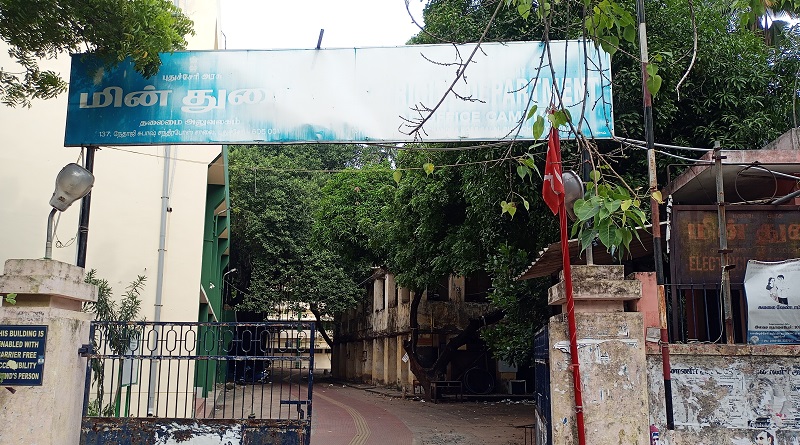
Struggle against privatization:
The core aspect of the movement is very concrete. It’s a struggle started by the EB employees and engineers and supported by broader poor and working-class people against the central government’s anti-people policy to sell off a profitable, efficient public sector in corporate hands.
“We started as a government employee, and shall end as government employee only” – determination seemed to be there in all the employees we could talk to.
As far as the local poor and working-class people are concerned, their support of the movement is due to the inevitable increase of tariffs that privatization will essentially bring.

United struggle against the pro-corporate reforms
This anti-privatization movement can be a good example of a united struggle across different strata of employees as well as different employee unions.
The movement has been organized by Puducherry electricity board employees and engineers’ privatization protest committee.
This is kind of a coordination committee of multiple employee unions including but not limited to IT union, power engineer union, graduate engineer union, LPF, CITU, and INTUC. Due to this United forum of various protesting organizations, as well as the very clear basic demand of retaining the public employee character of the employees, despite ideological differences and minute differences on fine details the unions were able to forge a united struggle.
This is also the reason the usual tactics to polarize in religious lines and divide the movement failed.
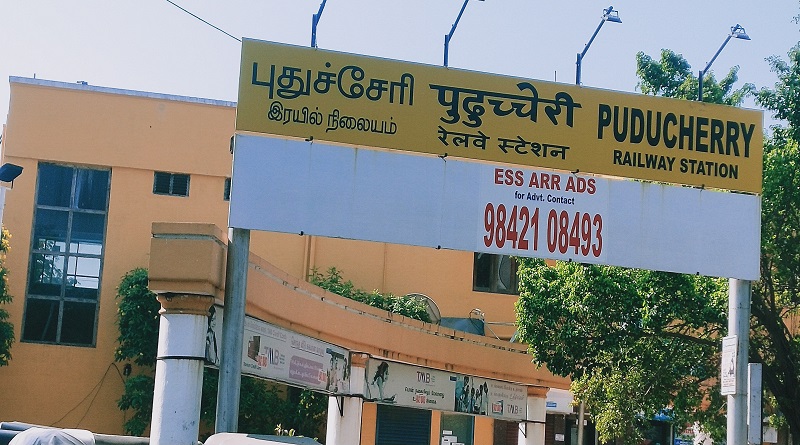
Bursting the myth that the public sector is less efficient
To lure away a section of consumers who would support the workers, from the staunch supporters of privatization a narrative is often propagated that the public sector is less efficient and privatization will increase the efficiency and quality of service.
However, the information gathered on the ground bursts this narrative and exposes the actual intentions of those who create these narratives in broad daylight. In the particular case of Puducherry electricity board, it has given persistently good quality service to the consumers.
For the past two years, there has been a continuous and persistent power supply without interruptions. Even during natural calamities like floods etc power supply has been restarted within twenty-four hours.
As Pondicherry is a popular tourist destination throughout the year, there are many hotels and guest houses. This is a good source of local revenue generation. It’s due to the high-quality service of this Puducherry electricity board, the entire process keeps running.
From the conversations that we were able to make with the employees and a few locals, we found that the EB employees are quite accessible to listen to any consumer grievances and quick to respond as well.
There is absolutely no reason to think that decision for privatisation has any correlation whatsoever with increasing efficiency or improving the quality of service.
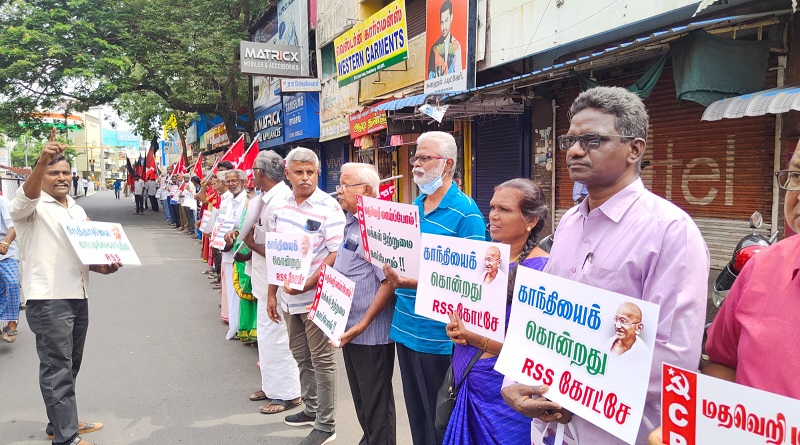
Selling off another profitable public sector
In the pro-privatization narrative, often the argument for privatization is that selling the public sectors running under loss will generate much revenue, which will in turn help to sustain the profitable sectors and boost the economic growth of the country.
However, on contrary, the Pondicherry electricity board isn’t running in loss. In recent times, we have seen that the central government has taken the policy of rampant privatization of even the most profitable public sector.
Attempting to privatize the Pondicherry electricity board is just another addition to the list.
This is also one important point that the movement leaders have emphasized during the conversation with us in their message to the public and well-wishers of the movement.
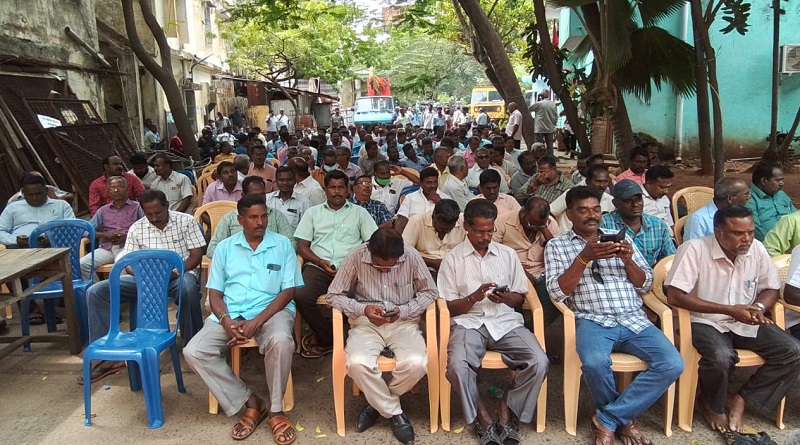
Enraged locals against the central government policies
While definitely, the inevitable increase in tariffs that privatization will bring was a key factor for the broader masses of poor and working class to support the movement, there is anger about the other policies of the central government which also contributed to it.
From the people, we could talk to in the teashops, bus stands, etc as well as the auto drivers, and small roadside food vendors; we found that there is general anger about the rising cost of living as a consequence of the increased price of essential commodities. Already there was an increase in electricity tariffs in April.
Rising petrol prices have contributed to the lowering of income for the auto-drivers.
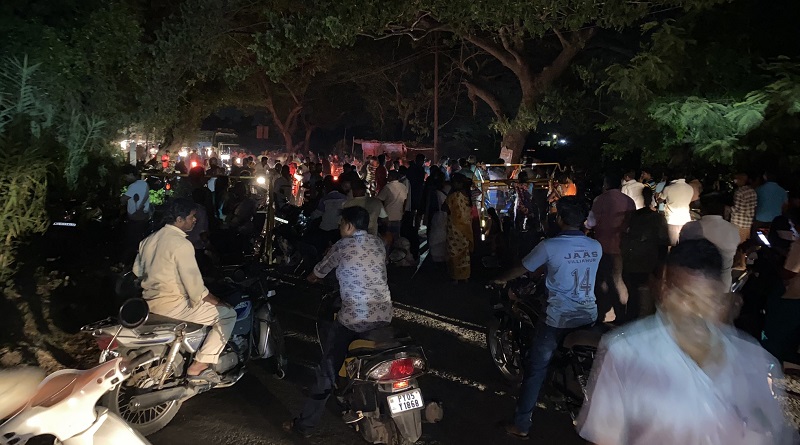
Power minister abusing his power to harass and intimidate the protesters
In Puducherry, the current power minister is also in charge of the police ministry.
To suppress the movement he is using the police against the protesters in a vindictive manner. More than 350 protesters and union leaders were arrested in Puducherry city alone for participating in the movement and collective court cases have been filed against them.
This although created a general sense of fear, the protesters seem to be very determined about their demands.
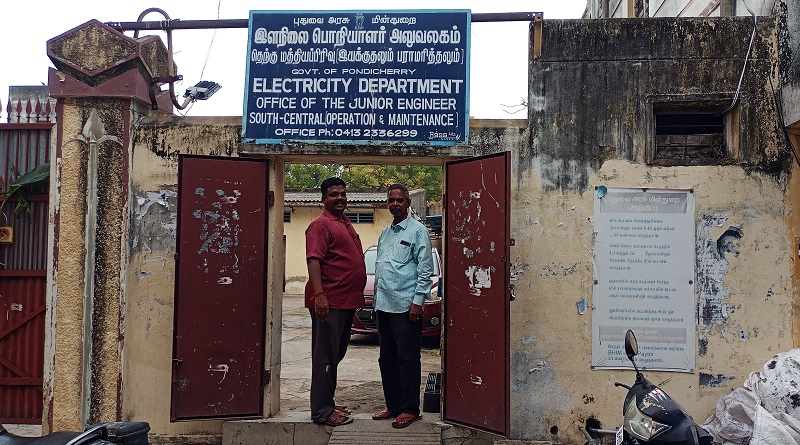
Strike temporarily called off, struggle not ended
After talking with the general secretary of the Pondicherry electricity employees and engineers privatization protest committee Mr. V. Velmurugan, we got the impression that the temporary calling off the strike should not be misunderstood as the defeat of the movement or the end of the struggle.
As per the current stage of negotiations, the government has agreed to the demands of withdrawal of all cases against the movement leaders and the participants as well as accepted that the privatization will remain below 50 percent.
However, the unions have given the government an ultimatum to implement those promises within Deepavali. Mr. Velmurugan quite emphatically said us that if the demands are not fulfilled within that timeframe they will go to strike again.
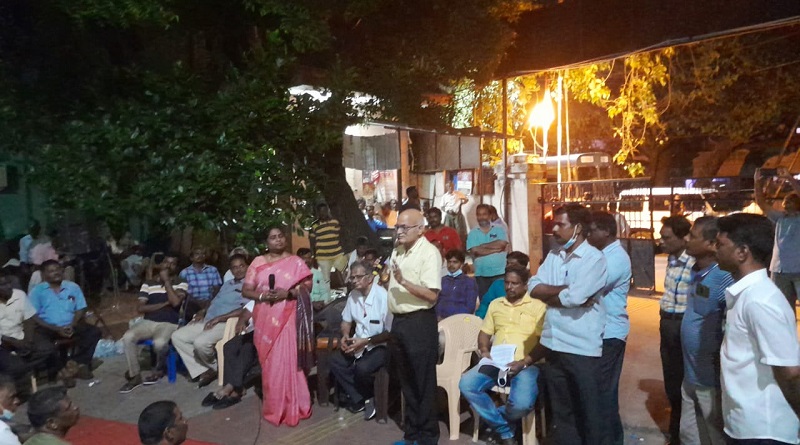
What lies ahead
There has been a concerted effort from the government to isolate the protesters from its broader mass support by using smear campaigning.
So far, although this foul tactic hasn’t been very successful, how it plays out in the future is yet to be seen. How much the government sticks to fulfilling the promise of negotiated points in the stipulated time frame, and whether we will actually see the second phase of this strike action is yet to be seen.
There have been solidarity strike by the Telengana EB workers in solidarity with the Puducherry EB workers movement and against the police repression on it.
Whether the movement against electricity privatisation in Puducherry gets intensified to a pan-India militant mass movement is yet to be seen. During the historic farmers movement recently the repeal of Electricity bill was one of the key unfulfilled demands.
Intersection of the current phase of EB workers’ movement with the axis of farmers’ movement is also something to look for in the future.
Subscribe to support Workers Unity – Click Here
(Workers Unity follows the principles of independent fair media. You can strengthen it by following its Facebook, Twitter and YouTube. Click here to subscribe to Workers Unity’s Telegram channel. Download the app for easy and direct reading on mobile.)
